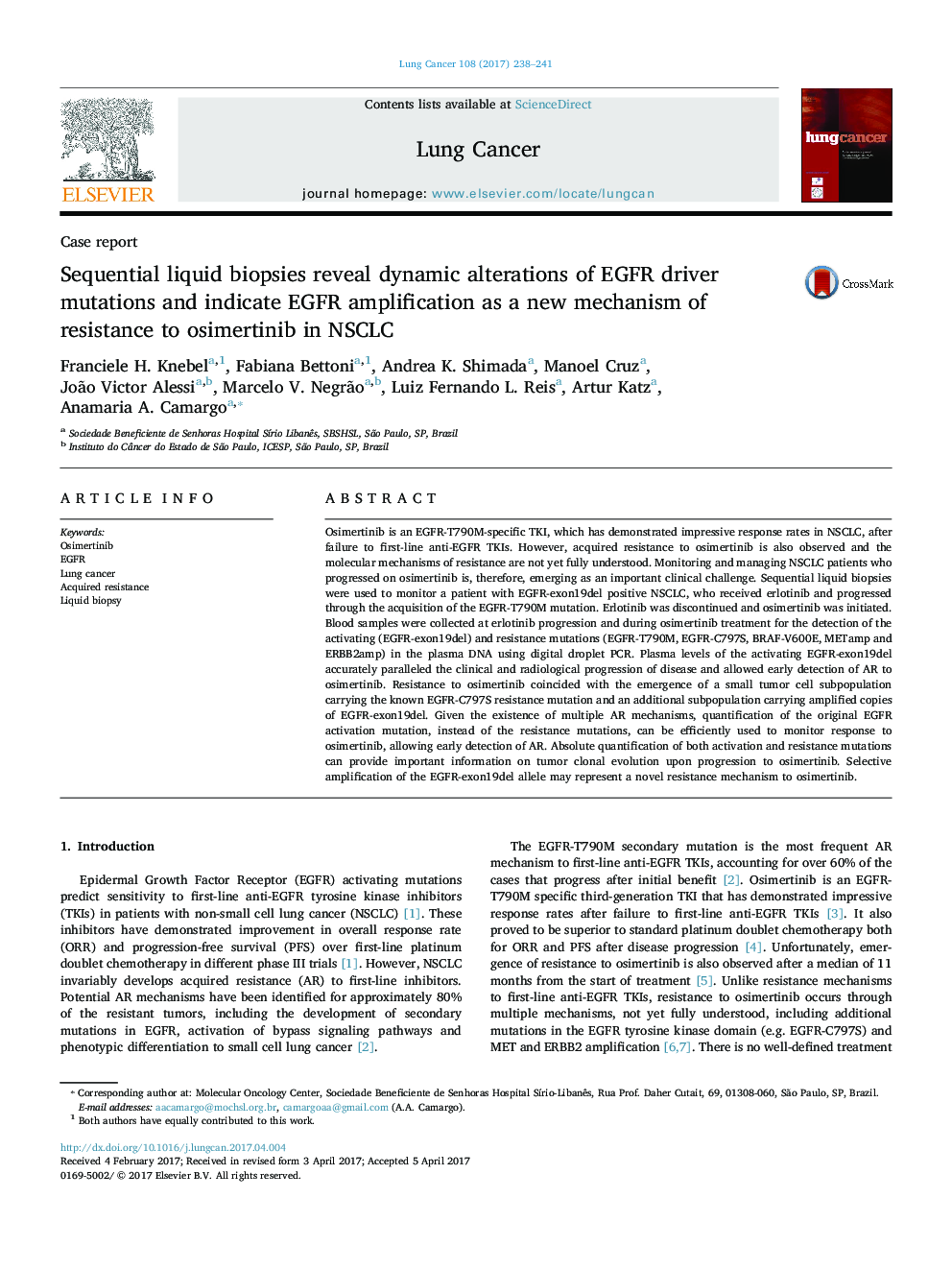| کد مقاله | کد نشریه | سال انتشار | مقاله انگلیسی | نسخه تمام متن |
|---|---|---|---|---|
| 5528211 | 1547959 | 2017 | 4 صفحه PDF | دانلود رایگان |

- EGFR mutations in cfDNA reveal tumor clonal evolution during osimertinib treatment.
- Detection of EGFR activating mutation in cfDNA forecasts resistance to osimertinib.
- EGFR-exon19del amplification is a putative resistance mechanism to osimertinib.
Osimertinib is an EGFR-T790M-specific TKI, which has demonstrated impressive response rates in NSCLC, after failure to first-line anti-EGFR TKIs. However, acquired resistance to osimertinib is also observed and the molecular mechanisms of resistance are not yet fully understood. Monitoring and managing NSCLC patients who progressed on osimertinib is, therefore, emerging as an important clinical challenge. Sequential liquid biopsies were used to monitor a patient with EGFR-exon19del positive NSCLC, who received erlotinib and progressed through the acquisition of the EGFR-T790M mutation. Erlotinib was discontinued and osimertinib was initiated. Blood samples were collected at erlotinib progression and during osimertinib treatment for the detection of the activating (EGFR-exon19del) and resistance mutations (EGFR-T790M, EGFR-C797S, BRAF-V600E, METamp and ERBB2amp) in the plasma DNA using digital droplet PCR. Plasma levels of the activating EGFR-exon19del accurately paralleled the clinical and radiological progression of disease and allowed early detection of AR to osimertinib. Resistance to osimertinib coincided with the emergence of a small tumor cell subpopulation carrying the known EGFR-C797S resistance mutation and an additional subpopulation carrying amplified copies of EGFR-exon19del. Given the existence of multiple AR mechanisms, quantification of the original EGFR activation mutation, instead of the resistance mutations, can be efficiently used to monitor response to osimertinib, allowing early detection of AR. Absolute quantification of both activation and resistance mutations can provide important information on tumor clonal evolution upon progression to osimertinib. Selective amplification of the EGFR-exon19del allele may represent a novel resistance mechanism to osimertinib.
Journal: Lung Cancer - Volume 108, June 2017, Pages 238-241